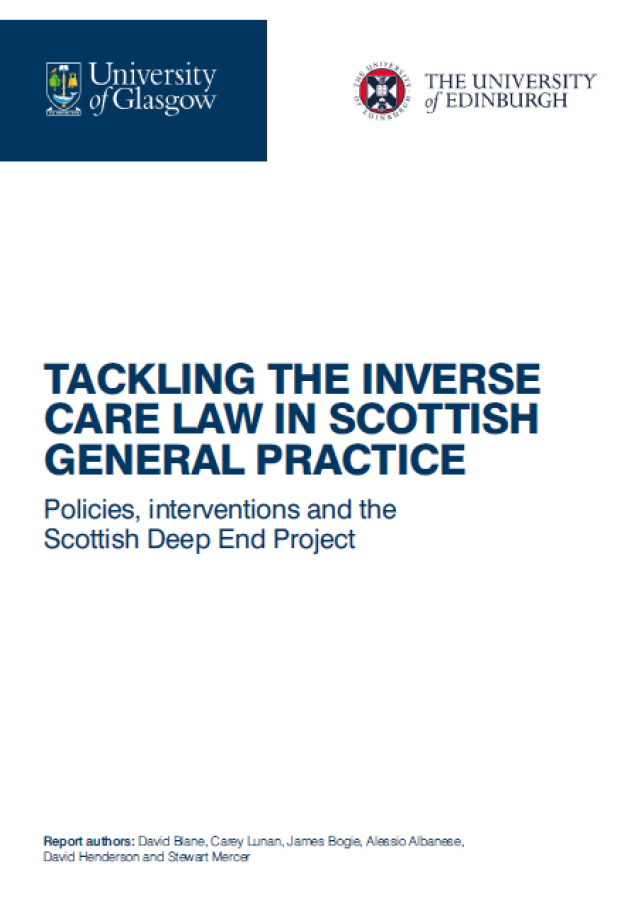Tackling the inverse care law in Scottish general practice A report funded by the Health Foundation and produced by the University of Glasgow and the University of Edinburgh.
April 2024

Key points
- The ‘inverse care law’ describes how people who most need health care are least likely to receive it. Research shows it applies to general practice in both Scotland and England.
- This report explores the inverse care law in Scottish general practice. It analyses policies and interventions in Scotland since 2000 and presents the latest available data. It also draws on insights about the Scottish Deep End project – a collaboration between academic and front-line GPs working in the most deprived areas.
- Since Scottish devolution in 1999, there have been numerous policy commitments to strengthening general practice in deprived areas. However, there remains a major implementation gap between policy ambitions to address health inequalities and sustainable delivery on the ground. Of the 20 interventions identified, few have received sustained investment. Only two – Community Link Workers and Welfare Advice and Health Partnerships – have been rolled out nationally in Scotland, but their future remains uncertain.
- General practice funding per patient in the most deprived areas of Scotland is roughly equal to the least deprived areas, despite much higher levels of need. The most deprived areas also have both a smaller number of GPs and general practice workforce overall.
- Interviews with stakeholders highlighted concerns that the current Scottish General Medical Services (GMS) contract – introduced in 2018 - insufficiently accounts for patient complexity and workload in deprived areas. Interviewees emphasised the important role of the Scottish Deep End Project in advocating for patients and providing a collective voice.
- Policymakers in Scotland need to take steps ensure practices in more deprived areas are resourced in proportion to the needs of patients. Where interventions are working well, policymakers need to ensure long-term sustainable funding. The upcoming second phase of the 2018 GMS contract is an important opportunity to take lessons forward.
Funded by the Health Foundation and produced by the University of Glasgow and the University of Edinburgh, this report explores how the inverse care applies to general practice in Scotland.
It does so in three parts. First, the report identifies and analyses policies and interventions to address the inverse care law in Scotland since 2000. Second, it draws on interviews with key stakeholders to understand the impact of the inverse care law and efforts to tackle it, in particular the role of the Scottish Deep End project – a collaboration between academic and front-line GPs working in the most deprived areas. Finally, it presents the latest available quantitative data, showing how the general practice workforce and funding is distributed across the deprivation gradient in Scotland.
This report provides important lessons for policymakers in Scotland, including the need to better match general practice funding and workforce to need. The experience in Scotland also provides learning for policymakers across the UK.
Cite this publication
Further reading
Work with us
We look for talented and passionate individuals as everyone at the Health Foundation has an important role to play.
View current vacanciesThe Q community
Q is an initiative connecting people with improvement expertise across the UK.
Find out more


